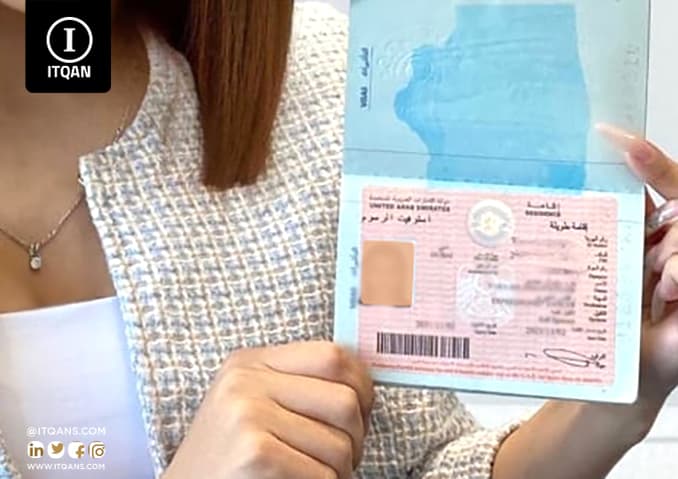Establishing a company in the Dubai Knowledge Park free zone represents an important strategic step for investors seeking to benefit from the advanced business environment in Dubai. Dubai Knowledge Park features modern infrastructure and advanced technologies, providing an ideal environment for investment and innovation. The complex offers many perks such as tax and customs exemptions, and tolerant local government policies, making it a preferred destination for startups and medium-sized companies. In this article, we will take a look at the basic steps for establishing a company in a Dubai Knowledge Park free zone, including choosing the appropriate company type, registration procedures, and expected financial costs. We will also discuss the available investment opportunities and how to benefit from the advanced infrastructure provided by the complex to support business growth and achieve success in the dynamic and global Dubai market.

Establishing a company in the Dubai Knowledge Park Free Zone
جدول المحتوى
ToggleSteps to establish a company in the free zone
Here are basic steps for establishing a company in a free zone in Dubai , such as Dubai Knowledge Park:
- Choose the type of company: Decide what type of company you want to establish, such as a limited liability company, sole proprietorship, or subsidiary. This depends on the type of business activities and strategy you wish to adopt.
- Choosing a free zone: Select the appropriate free zone for your company’s activities, such as the Dubai Knowledge Park, and ensure the availability of infrastructure and tax and customs benefits that meet your business needs.
- Submitting a registration application: Submit a registration application for the company in the selected free zone, and be sure to submit all required documents such as company contracts, and details of shareholders and managers.
- Obtaining government approvals: Wait for the necessary government approvals, including business licenses, trade licenses, and other approvals needed to start business activities.
- Signing contracts and final establishment: Sign the necessary contracts with partners and managers, and complete the final procedures for establishing the company in cooperation with the local authorities in the free zone.
- Issuing licenses and licences: Once the procedures are completed, request the issuance of commercial licenses and licenses necessary to start commercial activities in the free zone.
- Open a bank account: Open a bank account for the company in one of the local banks, to facilitate the management of the company’s financial flows and daily financial transactions.
- Legal and Tax Compliance: Ensure compliance with all tax and legal laws and legislation in Dubai and the UAE, and submit the necessary financial and administrative reports regularly.
The cost of establishing a company in the free zone
The costs of establishing a company in a free zone in Dubai vary based on several factors, including the type of company, the free zone chosen, and the services required. Here’s an overview of the approximate costs:
- Registration and licensing fees: These fees include the costs of issuing commercial licenses and licenses necessary to start commercial activities in the free zone.
- Legal and accounting consulting costs: You may need legal and accounting consulting to guide you through the incorporation process and ensure compliance with local laws. The costs of these consultations vary based on the size of the company and the services required.
- Rent and infrastructure costs: If an office or work space is needed, monthly or annual rental costs are included, as well as infrastructure costs such as telecommunications and internet.
- Necessary capital: The necessary capital depends on the type of company and the requirements for incorporation, as some company types may need a certain initial capital to start business operations.
- Other government fees: These include other administrative fees and government services necessary during the establishment and operation process.
- Other administrative costs: These costs include daily administration costs such as salaries, social insurance, and other general expenses necessary to successfully operate the company in the free zone.
Types of companies that can be established in the free zone
In the Dubai Free Zone, several types of companies can be established that vary according to the needs of different investors and businesses. Among the common types of companies that can be established in the Dubai Free Zone are:
- Limited Company: Provides financial protection to shareholders as they do not bear financial liability beyond their share in the capital.
- Sole Proprietorship: Managed by one person who bears full responsibility for the debts and business.
- Public joint stock company: Public joint stock companies can be listed on the financial market for trading.
- Foreign Branch: A subsidiary of a parent company outside the country and can work in the free zone under one name representing the parent company.
- Limited Liability Company: Provides limited protection to shareholders like a limited company but differs in its organizational structure and liability.
- Sole Proprietorship Limited Liability Company: Allows the business owner to control the business on his own while at the same time benefiting from legal protections similar to corporations.
The necessary papers to establish a company in the free zone
To establish a company in a free zone in Dubai , the following papers are usually required:
- Registration application form: Submitted to the competent authority in the free zone you have chosen.
- A copy of the company contract: It must be prepared according to the chosen company type (joint stock company, limited liability company, etc.), and includes details of shareholders and the shares allocated to them.
- Copy of passport for shareholders and directors: A certified copy of passports must be provided for everyone who owns or manages the company.
- Business plan: A document detailing your plans for a company’s future business, including company activities and plans for expansion and growth.
- Authorization to sign: If someone represents you in the registration process, an authorization to sign on your behalf must be provided.
- Name Approval Certificate: You must verify the availability of the name of the company to be established and obtain approval to use this name.
- No Objection Certificate: This certificate is required if you intend to use a property as a company headquarters.
- Ultimate Customers and Beneficiaries (UBO) Identification Form: This form must be submitted to identify the actual shareholders (ultimate owners) of the company.
Corporate tax obligations in Dubai
In Dubai, corporate tax obligations are an essential part of their daily operations and require compliance with local tax legislation. Here’s an overview of the main tax obligations for companies in Dubai:
- Value Added Tax (VAT): Since 2018, a 5% VAT has been applied to most goods and services provided in Dubai and the UAE. Companies are obliged to register for VAT if their annual revenues exceed the specified (variable) limit and submit the relevant reports and accounting books.
- Income Tax: In Dubai, there is no personal or corporate income tax for residents. However, there is a tax on oil companies and banks, as well as an income tax for non-domestic foreign companies operating in some selected sectors.
- Registration and license fees: These fees include the financial costs of registering the company and obtaining the necessary licenses to operate in Dubai, which must be paid regularly in accordance with the specific requirements of the local authorities.
- Customs taxes: These relate to duties and taxes imposed on import and export, which companies must adhere to when trading goods and services across borders in Dubai.
- Other administrative obligations: including financial disclosure and annual tax reports, which companies must regularly submit to local authorities to ensure compliance with tax laws and financial legislation.
At the conclusion of this article, we find that establishing a company in Dubai Knowledge Park represents a strategic step of great importance for investors seeking to benefit from an advanced and regulated business environment. The complex features advanced infrastructure and provides a stimulating environment for innovation and investment, making it an ideal destination for companies seeking global growth and expansion. The free zone in the complex offers multiple opportunities in several sectors from technological industries to research and development, while providing significant advantages such as tax and customs concessions and administrative facilities.
To establish a company in Dubai Knowledge Park , investors must follow specific legal and administrative procedures, which include submitting the necessary documents and obtaining the required licenses and government approvals. After completing these steps, the company can begin carrying out commercial activities in full accordance with the appropriate legal conditions and local legislation.
The most important frequently asked questions about establishing a company in the free zone
What is the difference between a free zone and other companies in Dubai?
Investors are interested in knowing the differences between establishing a company in a free zone and establishing it elsewhere in Dubai, such as regulatory laws, tax concessions, and labor legislation.
What are the different types of companies that can be established in the free zone?
There are a variety of types of companies that can be registered in a free zone, including limited liability companies, sole proprietorships, subsidiaries, special purpose companies, real estate companies, and others.
What are the expected costs of establishing and operating a company in the free zone?
Investors should understand the financial costs of registering a company and obtaining the necessary licenses, as well as the annual costs of rent, administrative and legal services.
What are the legal and administrative procedures for establishing a company?
Investors should know the exact steps that must be followed to register a company in the free zone, including the necessary licenses, government approvals, and stock and shareholder registration procedures.
What are the other administrative and legal requirements for operating a company in the free zone?
These requirements include annual financial disclosure, tax reporting, and compliance with relevant local laws and international legislation.
















